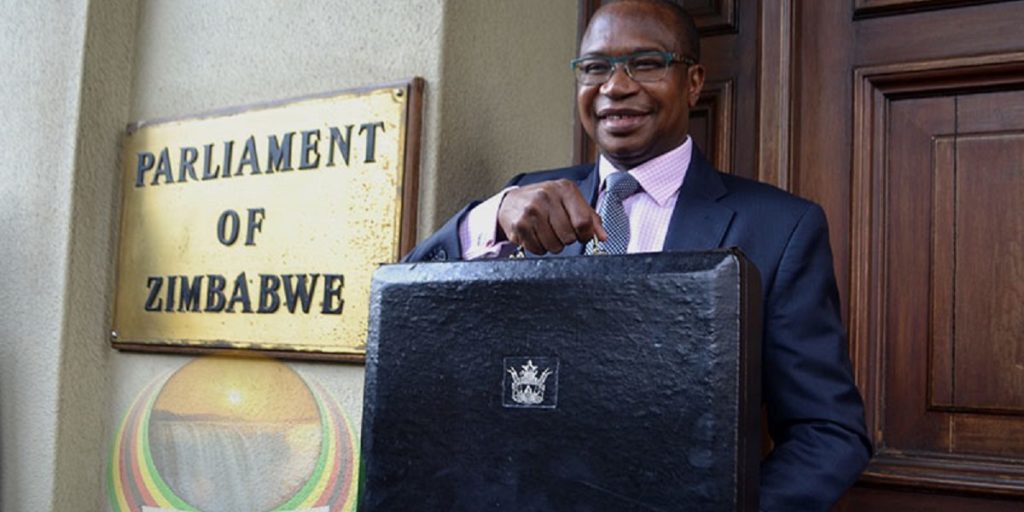Mthuli Ncube to present an RTGS budget

Mthuli Ncube to present a worthless budget
Finance, Economic Development and Investment Promotion Minister, Professor Mthuli Ncube has slammed the door on calls that he present the 2024 budget in United States dollars, despite the fact that the local currency continuing to lose value and the market is not in favour of its continued use, Business Times can report.
Ncube, who is expected the 2024 national budget on Thursday next week, asserted that he is perfectly entitled to present the budget in Zimbabwe dollars.
“The Zimbabwe dollar is our currency, and we have every right to present the budget in our currency. We also have the right as we do to convert amounts to United States amounts or any other currency within the multicurrency regime. So, I don’t think its an issue of United States dollars vs Zimbabwe dollars. The budget will be in our domestic currency,” Ncube said.
Analysts and critics have been putting pressure on the Treasury boss to move from a Zimbabwean dollar to the United States dollar for the 2024 budget.
Ncube warned that in order to maintain long-term macroeconomic stability, he will continue to pursue a strict fiscal policy.
“….We are staying within our prudential guidelines in terms of policy. We are doing everything to maintain our current account surplus. We are also carrying on with tight and tougher fiscal policy regime,” Ncube said.
Pointing to economic drivers in the 2024 budget, Professor Ncube said incentives will be critical.
To join our groups follow:
https://chat.whatsapp.com/GLud1hzoezpKoosM8uOmZK
“We want to make sure that the budget supports our social protection programs, leaving no one behind, protecting the vulnerable and poor at the same time stimulating economic growth through incentives and other programs and projects as we do through investment in the infrastructure sub sector. It is going to be a balanced budget, that is what citizens should care about.”
Industry leaders have also been pressuring Professor Ncube to lower the tax burden.
Even so, it appears that he won’t give in to pressure because, unlike some African countries , the Government of Zimbabwe doesn’t receive budgetary support from the international community and strongly depends on taxes to fund its operations.
“We have engaged the Minister [Ncube] on the lessening of tax burden on businesses and the ordinary citizens during the budget consultations but he clearly stated that there will be no reduction from 15% on Value-Added Tax [VAT] as the government depends on this tax for its revenues. He said the VAT reduction is non negotiable. The minister also emphatically emphasized that the Intermediated Money Transfer Tax [IMTT] will not be further reviewed from the current level as it allows the government to collect revenue from the informal sector,” one business leader, who requested to remain anonymous told Business Times yesterday.
Kurai Matsheza, president of the Confederation of Zimbabwe Industries (CZI), stated that Ncube has a difficult task ahead of him in trying to balance the national purse.
“It’s entirely up to the minister himself to reduce the taxes or not but we would have wanted a downward review to lessen the pressure on businesses but with the high tax collection targets we are doubtful if the Treasury is going to consider our plea. He knows what’s best for the economy,” Matsheza said.
According to economist Gift Mugano, tax reductions are necessary to promote formalization and ensure that many businesses pay very little in taxes.
“Given that the country has a lot of infrastructure to build and civil servants to pay, with no other means to get support from somewhere, the government will tax ailing businesses and poor citizens to fund various operations. With this burden on its back, I don’t see the government reviewing tax downwards, instead it may increase like it did on VAT in the last budget presentation,” Mugano said.
In its 2024 budget submissions, The Zimbabwe National Chamber of Commerce (ZNCC) suggested that Value-Added Tax (VAT) be lowered from the current 15% to 14% in its 2024 budget submissions. This move was made in response to concerns that the high VAT would further erode consumer purchasing power and entrench informalization.
“In the 2023 National Budget, the government of Zimbabwe through the Ministry of Finance and Economic Development increased value-added tax (VAT) from 14.5% to 15%. The implication of this is that the additional cost of 0.5% was pushed to the consumer and in the process, added burden to the overly taxed population and thus, reduced consumer welfare. Overall, aggregate demand in the economy was also reduced as disposable incomes were negatively affected.
“Our request is that VAT should be reduced from the current 15% to 14% in an endeavour to boost aggregate demand in the economy,” ZNCC said.
–-BusinessTimes






